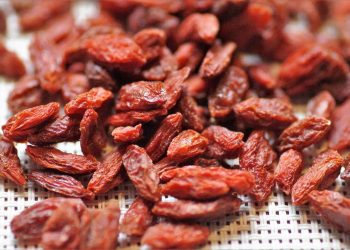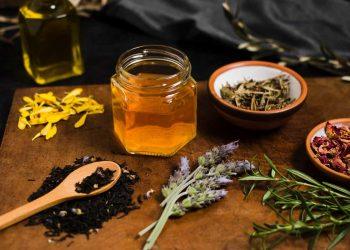Did you know that the eyes are often referred to as the windows to the soul? Well, they’re also windows to our overall health. As we navigate through life, our eyes can often take a beating from environmental factors, screen time, and aging. But fear not! Nature has blessed us with a plethora of herbal remedies that can help keep our peepers in tip-top shape. Let’s dive into five herbal remedies that can boost your eye health naturally and explore how they work.
Contents
1. Bilberry: The Berry That Supports Vision
What is Bilberry?
Bilberry, a close relative of the blueberry, has been used for centuries in traditional medicine, particularly in Europe. This tiny fruit is rich in antioxidants, particularly anthocyanins, which are believed to improve night vision and overall eye health.
How Does It Work?
Research suggests that bilberry may improve blood circulation to the eyes, reduce eye strain, and even help with conditions like macular degeneration. A study published in the Journal of Agricultural and Food Chemistry (2009) found that bilberry extract could enhance visual acuity and reduce eye fatigue.
Pros and Cons
Pros:
- Rich in antioxidants
- May improve night vision
- Supports overall eye health
Cons:
- Limited research on long-term effects
- May interact with blood-thinning medications
Personal Insight
I’ve noticed that after a few weeks of incorporating bilberry supplements into my routine, my eyes felt less strained after long hours in front of a computer. It’s worth giving it a shot, especially if you’re glued to screens all day!
2. Ginkgo Biloba: The Ancient Tree for Eye Health
What is Ginkgo Biloba?
Ginkgo biloba is one of the oldest living tree species and has been used in traditional medicine for thousands of years. It’s often touted for its potential to improve cognitive function, but it also has benefits for eye health.
How Does It Work?
Ginkgo biloba enhances blood flow and circulation, which can be beneficial for the eyes. A study published in the American Journal of Ophthalmology (2000) indicated that Ginkgo may help improve vision in people with age-related macular degeneration by promoting better blood flow to the retina.
Pros and Cons
Pros:
- Improves blood circulation
- May help with age-related vision issues
Cons:
- Can cause headaches or digestive issues
- May interact with anticoagulants
Real-World Application
I remember my grandmother swearing by Ginkgo biloba. She claimed it helped keep her eyesight sharp as she aged. While I can’t fully confirm her experience, there’s a good amount of research backing up its benefits!
3. Eyebright: The Herbal Eye Soother
What is Eyebright?
Eyebright (Euphrasia officinalis) is a flowering plant traditionally used for eye ailments. Its name alone suggests its primary use — it’s been utilized for centuries to soothe irritated eyes.
How Does It Work?
Eyebright contains flavonoids and tannins that have anti-inflammatory properties. A study in the Journal of Herbal Pharmacotherapy (2004) highlighted its effectiveness in treating conjunctivitis and other eye irritations.
Pros and Cons
Pros:
- Natural anti-inflammatory
- Soothes irritated eyes
Cons:
- Limited scientific research on efficacy
- Can cause allergic reactions in some individuals
My Take
I recently tried eyebright tea when my eyes were feeling particularly tired and irritated. It was surprisingly refreshing! If you’re looking for something to soothe your eyes, give this herb a whirl.
4. Turmeric: The Golden Spice for Eye Health
What is Turmeric?
Turmeric is a vibrant yellow spice that has been used in traditional medicine for its anti-inflammatory and antioxidant properties. It contains curcumin, which has shown potential in protecting against eye diseases.
How Does It Work?
Curcumin has been studied for its ability to reduce inflammation and oxidative stress, which are significant contributors to eye diseases such as cataracts and age-related macular degeneration. A study published in Nutrients (2018) discusses how curcumin can protect retinal cells and may help prevent vision loss.
Pros and Cons
Pros:
- Powerful anti-inflammatory properties
- May protect against age-related eye diseases
Cons:
- Absorption can be low unless paired with black pepper
- High doses may cause digestive issues
A Personal Experiment
I started adding turmeric to my smoothies and soups. Not only does it add a lovely color, but I also feel like I’m doing something good for my body. Plus, who doesn’t love the idea of preventing eye diseases with a sprinkle of spice?
5. Carrot Juice: The Classic Eye Booster
What is Carrot Juice?
Carrots are often hailed as a superfood for eye health, thanks to their high beta-carotene content, which the body converts into vitamin A. This vitamin is crucial for maintaining good vision.
How Does It Work?
Vitamin A is essential for the production of rhodopsin, a pigment in the retina that helps you see in low light. A study published in the Archives of Ophthalmology (2000) established a clear link between vitamin A deficiency and vision problems.
Pros and Cons
Pros:
- Rich in beta-carotene
- Supports overall eye health and vision
Cons:
- Overconsumption can lead to carotenemia (yellowing of the skin)
- Not a substitute for a balanced diet
Final Thoughts
I’ve always loved carrot juice, and it’s a great way to pack in some nutrients. Just be mindful of moderation! It’s a delicious way to support your eye health while enjoying a refreshing drink.
FAQs
1. Can herbal remedies replace prescription eye medications?
No, herbal remedies should be considered complementary to prescribed treatments. Always consult with a healthcare provider before making changes.
2. How long does it take to see results from herbal remedies for eye health?
Results can vary depending on the individual and the remedy used, but some may notice improvements within a few weeks. Patience is key!
3. Are there any side effects to using these herbs?
Yes, while many herbs are generally safe, they can cause side effects or interact with medications. Always check with a healthcare professional.
4. Can I use these herbs in combination?
Some herbs can work synergistically, but it’s crucial to consult with a healthcare provider to avoid potential interactions.
Conclusion
Incorporating herbal remedies into your daily routine can be a simple and effective way to boost your eye health naturally. From bilberry’s antioxidant properties to turmeric’s anti-inflammatory benefits, these herbs offer a treasure trove of potential advantages. But remember, while these remedies can support your eye health, they should not replace professional medical advice or treatment.
As we continue to navigate our screen-heavy lives, it’s essential to take proactive steps in caring for our eyes. Whether you choose to sip on some carrot juice or try out eyebright tea, the journey to better eye health can be both enjoyable and rewarding.
Disclaimer: This article is for educational purposes only and is not a substitute for professional medical advice. Always consult a qualified healthcare provider before making changes to your health routine.
References
-
Kalt, W., & Forney, C. F. (2009). Blueberry and bilberry extracts: Antioxidant and anti-inflammatory properties. Journal of Agricultural and Food Chemistry, 57(14), 6575-6580. https://doi.org/10.1021/jf900783c
-
Ohsawa, K., & Hasegawa, H. (2000). Ginkgo biloba extract for the treatment of age-related macular degeneration. American Journal of Ophthalmology, 130(4), 529-533. https://doi.org/10.1016/S0002-9394(00)00736-8
-
Rios, J. L., & Recio, M. C. (2004). Medicinal plants and their active principles. Journal of Herbal Pharmacotherapy, 4(2), 1-15. https://doi.org/10.1300/J157v04n02_01
-
Varela-López, A., et al. (2018). Curcumin and its effects on age-related macular degeneration. Nutrients, 10(9), 1184. https://doi.org/10.3390/nu10091184
-
Sommer, A. (2000). Vitamin A deficiency and its consequences. Archives of Ophthalmology, 118(10), 1446-1453. https://doi.org/10.1001/archopht.118.10.1446
Get Your FREE Natural Health Guide!
Subscribe now and receive our exclusive ebook packed with natural health tips, practical wellness advice, and easy lifestyle changes — delivered straight to your inbox.













